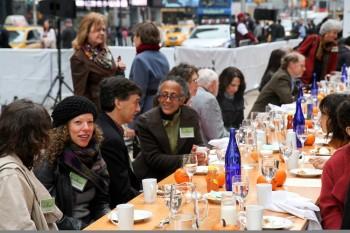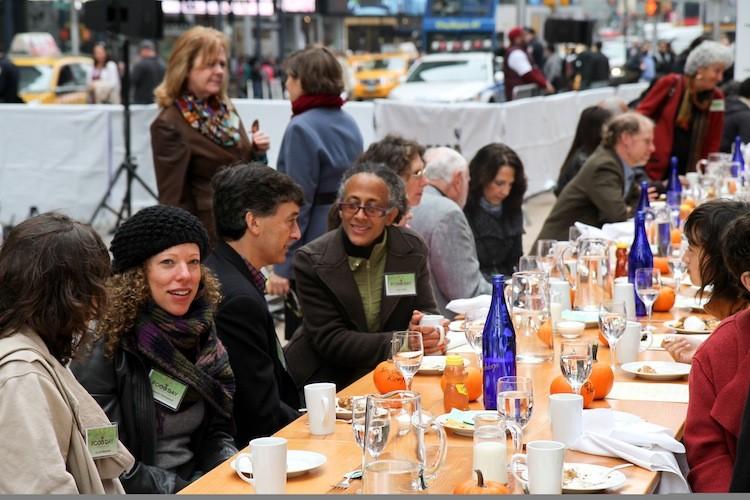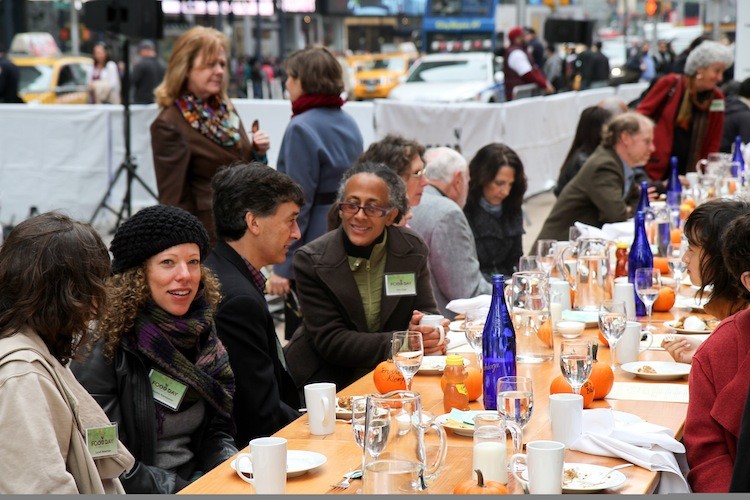Educating New York on Real Food
People throughout the city are taking pledges to avoid sugary drinks for a week, as part of NYC Go Sugary Drink Free, of the nationwide Food Day initiative.

Food celebrities, farmers, and healthy eating advocates stand at the Times Square 'Eat Real, Eat-In,' part of the national Food Day on Monday. Zack Stieber/The Epoch Times

Zachary Stieber
Senior Reporter
|Updated:
Zachary Stieber is a senior reporter for The Epoch Times based in Maryland. He covers U.S. and world news. Contact Zachary at [email protected]
Author’s Selected Articles





